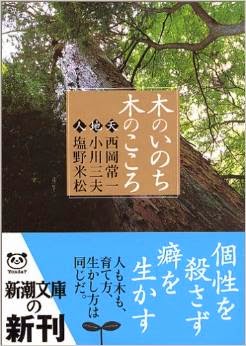*This is an elaboration of the eulogy I shared at Maxine's funeral on June 5, 2014.
I first came across Maxine’s work in 1996,
when I was at Colgate University, I read her Dialectic of Freedom in a class
titled “Democracy and Education.” It was unlike any kind of writing that I had
experienced before. It had poems, literature, films and art works… It was like reading her life stories that
weaved together all the beauties that have touched her life with educational
thought. Her writing invited me into her world, and made me think, “I know
her.”
After Colgate, I stayed in the U.S. to do
my masters degree and then went back to Japan to teach. I returned to the U.S.
in 2008, this time to pursue a doctoral degree at Teachers College. I was surprised
to learn that Maxine was still alive, and even more, that she was still
teaching. Her class, Education and the Aesthetic Experience was the first class
I took at TC. It took place on Tuesday afternoons, in her apartment by the
Central Park. We would sit around in her living room and together discussed
novels, films, art works, and connected to issues of schools and the broader
sociopolitical landscape. It was wonderful, but I stayed quiet in the class, trying
to take it all in, speaking up only in two occasions throughout the course.
Now, I did my master in philosophy of
education and, this time, I was thinking of doing something “practical,” like
education policy. So I went on to take numerous courses in education policy and
law. But Maxine’s words kept coming back, haunting me like ghosts. Among them
were “The most important questions are those
without answers,” and “Philosophy is
something that we do.”
So I began to write emails and engage in
conversations with her. She began to invite me to her apartment for
conversations. And, eventually, she invited me to be her teaching assistant.
When I became her TA, it all began to make
sense why she wrote the way she did. In the middle of the conversation, she
would suddenly look outside and be marveled by one particular tree outside her
dining window. She would say, “Oh, look
at the tree. Look at the curves and braches. How wonderful.” Or, she would
be entertained by the double-decker bus that pulled outside of her window and
say, “My audience has arrived!” She was
the most easily fascinated person that I have ever met.
Also, at one point, I saw how she made an
outline of her writing. You see, my understanding of outlining was, “Here are
the points I would like to make. One, two, three, and here is the conclusion.”
But hers was like, “OK, Camus’s Plague,
Picasso’s “Guernica,” “Integrity” by Adrianne Rich, and, yes, Tony Morrison’s Bluest
Eyes…” That was how she outlined her thoughts.
It all made sense.
Another thing I can share with you is Maxine’s
final years in the classroom. Constantly fighting the curse of being an
existentialist—never satisfied, never meaningful enough, creative enough—Maxine
taught to the very end. She only missed two classes this semester, including
the final class, when she became sick. I remember how, that day in the class,
there was a strange sense of shared responsibility and determination—that we
can do this without her, we will make her proud. We took it as if Maxine was
preparing us for her departure.
In her final years, she would only speak in
a couple of occasions during each class, largely because it was becoming
increasingly difficult for her to follow large-group discussions. Yet, it was
fascinating to see how students would cling onto those few words she would
speak, taking notes, nodding, trying to take it all in. It made me realize how,
at this point in her life, she was teaching with her presence.
That Maxine came to the class in her
wheelchair even on a snowy day,
that she engaged in conversations with
them,
that she resonated with what they said,
that she appreciated them coming back to
her class every week,
that she emphasized again and again the
significance of questions rather than answers,
that she dedicated her life to the search
of education for freedom,
will, no doubt, have lasting impact on so
many of them.
I remember how, at the end of one class
this spring, I asked her for final words because she hadn’t spoken much. She
said,
"There
are no final words, but only questions."
That's how I will forever remember Maxine.
I’m reminded of how she expressed her hopes
in her Dialectic of Freedom:
“My
hope is to reawaken concern for and belief in a humane framework for the kinds
of education required in a technological society. It is to recall those who
read to some lost spontaneity, some forgotten hunger for becoming different,
becoming new. My hope is to remind people of what it means to be alive among
others, to achieve freedom in dialogue with others for the sake of personal
fulfillment and the emergence of a democracy dedicated to life and decency”
(1988. p. xii)
Maxine once told me: “I don’t want to save the world. I only want to start a conversation.”
That, she certainly did.

